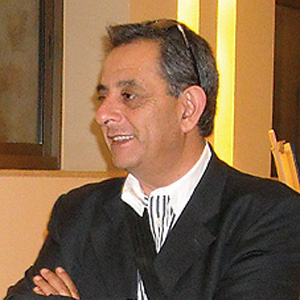Don’t ask how Hanan Al Hroub, a Palestinian schoolteacher, can win the prestigious World’s Best Teacher award for her approach to teaching children through play while the UNDP 2015 Palestine Human Development Report claims that our education system is in disrepair and failing.
Don’t ask how we have a building boom in Ramallah, a lively nightlife, fancy cars, posh houses, and a plethora of cultural activities while our economy is in shambles and our government is practically broke.
Don’t ask why Palestinians insist on walking between cars and in the middle of the road, honking at the car ahead of us before the traffic light turns green, making a U-turn exactly next to the sign that forbids U-turns, driving against traffic even if it is in a lane of oncoming cars, and doing whatever it takes to pass a line of cars, particularly at checkpoints, while the rule of law is only experienced in peaceful demonstrations such as those that the teachers organized to protest low wages. Please don’t ask.
And please don’t ask the political questions: Why are we sticking to the “peace” negotiations, the security coordination, the two-state solution, the Oslo Accords, and the Paris Protocol when all have proven to be not only futile and a charade, but also disastrous to the Palestinian people? Well, I suppose you could ask, but you surely won’t get an answer!
On the other hand, you should ask why it is that after forty-nine years of Israeli occupation (of what remained of Palestine), there is almost complete consensus that resistance to the occupation – in all shapes and forms – is a duty and a responsibility. Please ask why Palestinians have not assimilated during all this time and why they are still defiant and unrelenting. By all means, ask why solidarity from international civil society is flourishing, and why, despite all, Palestinians like Hanan compete in the world arena and win awards. Rami Salahat just won the Mohammed bin Rashid Al Maktoum Award for his innovative project of processing smart documents. No Nobel Prizes yet, but Palestinian international achievements have indeed been remarkable.
Palestine is paradoxically the land of the beautiful and the grotesque, the holy and the unholy, the normal and the absurd. Maybe this is why it is a special place. Those who live here tend to hate the place and crave to leave its misery and injustice. Yet what draws us back and makes us stay is family, friends, the social fabric, the streets of our old cities, the olive trees, the olive oil, the ka’ek of Jerusalem, the sea of Gaza, the struggle for justice, the sense of belonging and nationalism, the chaos, the prisoners, the people who sacrificed their lives so that others could be free, and a million other reasons that all combine to somehow soothe the hardship.
Whether we like it or not, it is our destiny to remain steadfast and to bear testimony to the injustice inflicted upon us.


